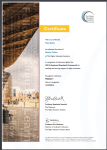Unfortunately I am unable to attend today’s Social Media for Learning in Higher Education conference at Edge Hill University. Thanks to the conference organisers for allowing me to submit a virtual presentation. The screencast can be found here and the abstract and slides for my talk are below:
‘Curation, Connectivity and Creativity: Reflections on using Twitter to teach Digital Activism
Dr. Paul Reilly, University of Sheffield
How can teachers leverage the connective affordances of Twitter to enhance student learning within Higher Education? How do students respond to content shared on module hashtags? In this virtual presentation, I will consider these questions by discussing my own experience of using Twitter in my Digital Activism modules over the past five years. During this period, I created hashtags such as #actandprotest and #digiadvocates in order to curate digital resources for my students at Leicester and Sheffield, as well as to encourage them to share relevant news items, blogs, and research papers at appropriate points during the course. I will reflect on what I refer to as the three ‘C’s of using Twitter in the context of Higher Education. First, the microblogging site provides unprecedented opportunities for the curation of resources. In the case of my Digital Activism teaching, real-time case studies such as Occupy Wall Street and the ‘Arab Spring’ were integrated into sessions through the use of Twitter to share links to blogs and news media coverage. Second, there is the connection with students who were using links shared on these hashtags to deepen their knowledge about theories such as connective action. Some even went as far as to use #actandprotest and #digiadvocates to share resources they had found with their classmates (and me). Finally, there is the ability to showcase the creativity of the students studying Digital Activism. For example, subvertisements (remixed logos of corporations that critique consumerism) were shared under #digiadvocates with the consent of the students who created them. This received very positive feedback from the class, as well as academics and students who were not enrolled in the module but were following the hashtag. The presentation concludes by considering how Twitter may be used to support student learning in the future.
The conference programme can be found here and you can follow on Twitter using #SocMedHe19

